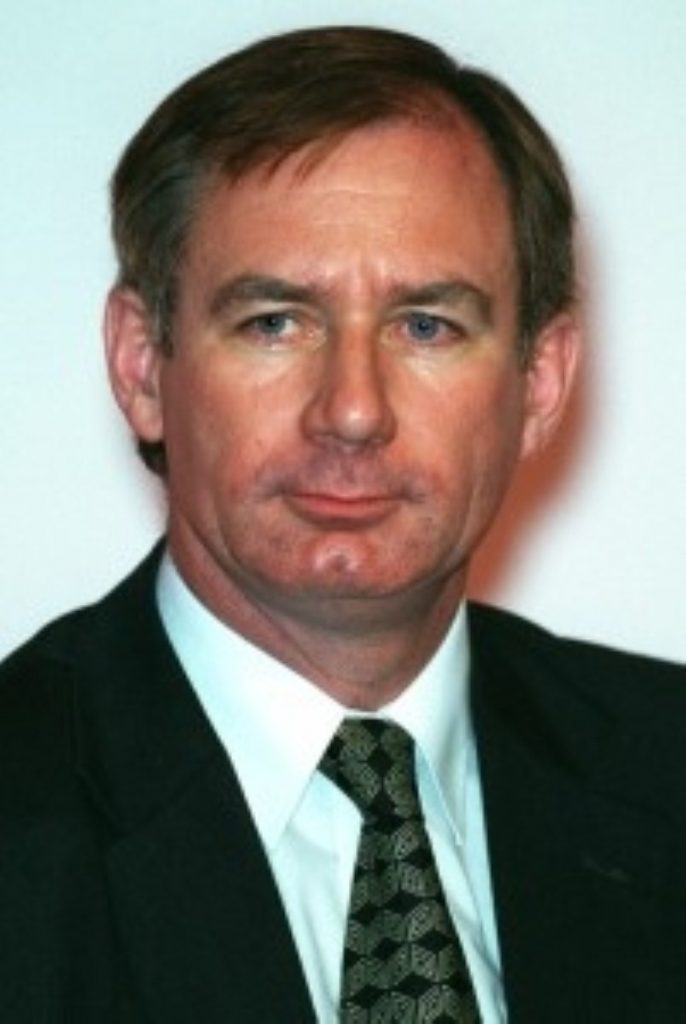Hoon ‘ordered Kelly to face grilling by MPs’
Defence secretary Geoff Hoon allegedly overrode the advice of senior civil servants and demanded that Dr David Kelly appear in public before the House of Commons Foreign Affairs Committee, the Hutton Inquiry today heard.
The inquiry into the events leading up to the Ministry of Defence scientist’s death two days after his appearance was given details of a memorandum from the permanent secretary at the Ministry of Defence Sir Kevin Tebbit to Mr Hoon recommending that Dr Kelly should not have to give evidence to the cross-party committee.
Meanwhile, in a separate development a coroner has decided that the weapons expert died from bleeding caused by a number of cuts to his wrist.
Nicholas Gardiner told the inquest at Oxford Coroner’s Court that the secondary cause of death was an overdose of co-proxamol and a hardening of the arteries caused by high cholesterol.


An amended medical report by Home Office pathologist Dr Nicholas Hunt concluded that either of two of the cuts to his wrist made by a blade, would have proved fatal.
He stated that the electric pads found on Dr Kelly’s chest had been placed there by paramedics who were trying to revive the weapons expert.
Mr Gardiner announced that he was handing over the main investigation into Dr Kelly’s death to the Hutton Inquiry.
In his memo Sir Kevin argued that allowing Dr Kelly to go before the FAC would attach “disproportionate importance” to his evidence.
Sir Kevin added, “The other reason for avoiding two hearings is some regard for the man himself. The man came forward voluntarily. He is not on trial.”
He said that he believed Dr Kelly should only give evidence to the Intelligence and Security Committee (ISC), which sits in private.
The committee’s inquiry on Iraq had finished and was re-opened to hear evidence from BBC defence correspondent Andrew Gilligan and Dr Kelly.
However, a second memo showed that Mr Hoon’s office had argued that it would be “presentationally” difficult to avoid putting Dr Kelly before the committee.
Mr Hoon had also suggested, the inquiry heard, that Dr Kelly could “call into question” evidence given to the committee by Mr Gilligan.
Lord Hutton was told how the chairman of the Joint Intelligence Committee, John Scarlett, had refused to accept Dr Kelly’s denials that he was the source of the BBC report and had wanted to subject him to a “security-style” interview.
Mr Hoon’s private secretary Dominic Wilson sent a further memorandum to his counterpart in Foreign Secretary Jack Straw’s private office noting that it had been decided that Dr Kelly should give evidence to FAC.
It emerged today that Dr Kelly had expressed concern about facing a public hearing before the committee and that he had been warned that any further breaches of civil service rules would lead to disciplinary action.
Dr Kelly apparently committed suicide after he became embroiled in a row between the government and the BBC over allegations regarding the use of weapons intelligence in the run up to the Iraq war.
The Iraqi arms expert’s boss at the Ministry of Defence, Dr Bryan Wells, gave evidence during a lengthy session with the inquiry panel this morning.
During the questioning it emerged that Dr Kelly told his MoD bosses that it was Mr Gilligan who raised the name of Downing Street media chief Alastair Campbell during their meetings, despite claims to the contrary by BBC reporters yesterday.
Dr Wells said the possible public naming of Dr Kelly was discussed at their meetings, and the scientist did not appear uncomfortable with the idea.
Dr Wells said Dr Kelly was warned it might become necessary to issue a public statement based on his account of his meeting with Mr Gilligan and he had been questioned on certain discrepancies between his version of meetings and Mr Gilligan’s.











